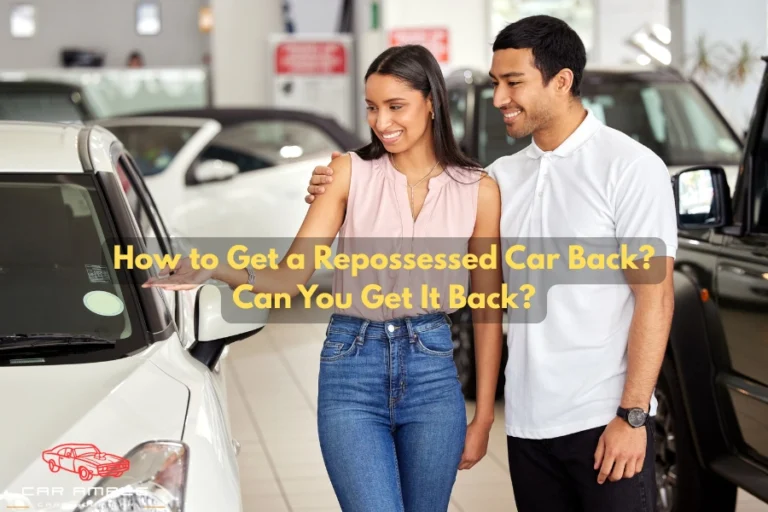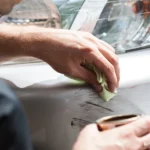Can You Trade in a Damaged Car? Insights and Advice

Cars can get damaged over time, like a scratch on the door, an overheating, an electrical issue, or hail damage. But what if you want to trade in your car? You should be wondering, Can you trade in a damaged car? The short answer is yes. However, there are many aspects to consider when you trade damaged vehicles, especially when you trade in a damaged financed car.
Let’s explore what types of damage affect car value, what the pros and cons of trading are, how to estimate car worth, and more tips about trading damaged vehicles.
Table of contents
- Can You Trade in a Damaged Car? The Truth
- Can You Trade in a Damaged Financed Car?
- Types of Car Damages: What Affects Trade-In Value
- How Can You Trade in a Damaged Car?
- How to Determine Your Car’s Trade-In Value
- Pros and Cons of Trading in a Damaged Car
- Tips for Trading in a Damaged Car
- Alternatives to Trading in a Damaged Car
- Conclusion
- FAQs
Can You Trade in a Damaged Car? The Truth
Yes, you can sell or trade the damaged car, but there are some things to consider. The first thing to check is whether there is physical damage to the body, an electrical issue, or mechanical damage. The second thing you should keep in mind is whether the damage is repairable or not. These considerations will help you estimate the trade-in value of your damaged car. While trading in a damaged car is possible, you will have to keep some realistic expectations about the price.
Can You Trade in a Damaged Financed Car?
Yes, you can also trade in a damaged financed car, but some things will be different. Especially if your car has negative equity or is a totaled car, the scenario will be different. Here is how:
Negative equity for a damaged financed car
You will have to check whether the car has negative equity or not. The negative equity means the value of the damaged financed car becomes less than the remaining loan or installments. If your damaged financed car has negative equity, postpone the trade until negative equity becomes zero, pay the negative equity upfront, or roll it into your next vehicle.
The car has become totaled
If the repairing cost of a damaged car exceeds its actual market price, the car becomes totaled. In such a scenario, you can trade in a damaged finance car, but the selling price will be very low. Moreover, the insurance companies only pay the market price of a totaled and damaged finance car instead of repair costs.
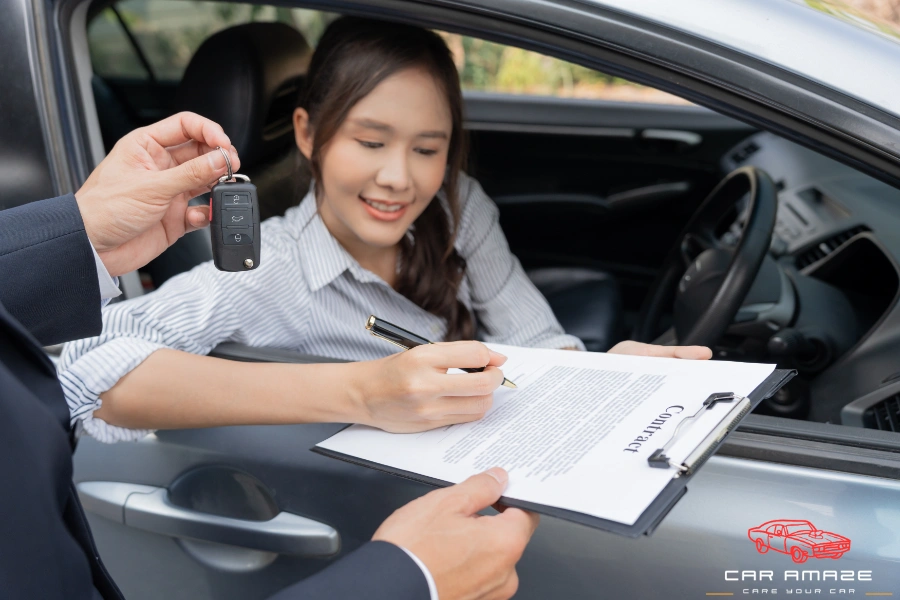
Types of Car Damages: What Affects Trade-In Value
Not all damages are the same, and each type affects the trade-in value differently. You can trade the damaged car at a good value, but analyze the damage to estimate the value. Here are some common types of damages:
Cosmetic damage (scratches and dents)
Cosmetic or physical damage includes scratches, small dents, hail damage, and paint chips. These damages do not affect the mechanical or electrical function of the car. The main impact of cosmetic damage is on the look of your car, which reduces its value. People value appearance.
Mechanical damage (engine, transmission, brake, etc.)
Mechanical damage involves internal components like the engine, carburetor, suspension, brake, etc. Some common mechanical issues are brake failure, a malfunctioning steering system, car overheating when idle, and a tight clutch pedal. If the mechanical issue is easily repairable, the trade-in value will be high; otherwise, it will be low.
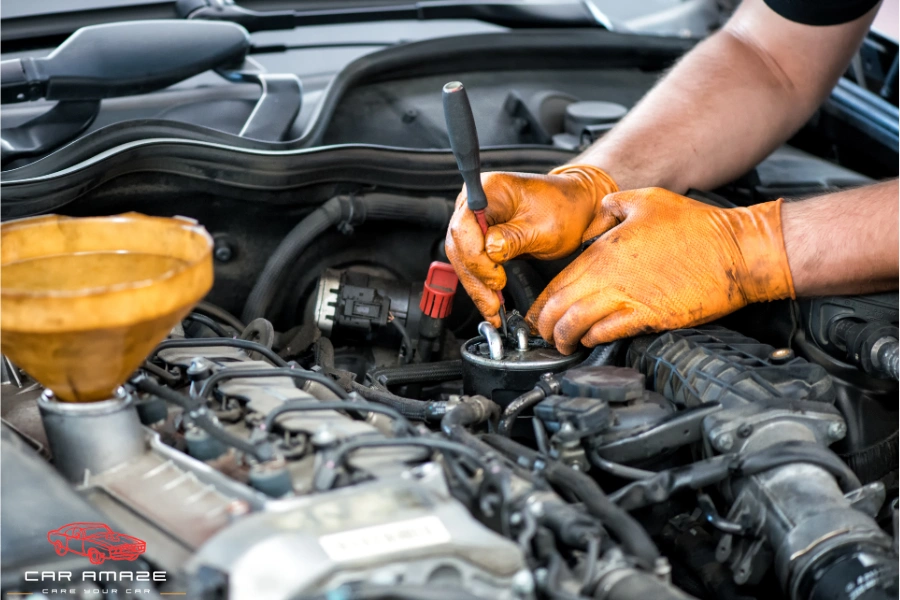
Structural damage (Frame, Unibody)
Structural damages occur during major accidents or when a car is hit with a hard surface. Structural damage can affect the car’s driving behavior and safety. Dealers in the USA might accept a car with structural value, but the trade-in value will be very low.
Other types of car damage (flood, fire, hail, etc.)
Some other types of damage occur due to environmental or weather conditions, such as floods, hail, and fire. The water or rain damage might be serious, especially if the vehicle is electrical. Moreover, if the car is exposed to severe hailing, the damage to the body and paint of the car will be huge. If you are thinking of repairing a car with hail damage, first decide if it is worth fixing hail damage on a car.
📘 Precise Overview – Can You Trade in a Damaged Car and What to Expect
Want to know if you can trade in a damaged car or even a damaged financed car? This quick PDF overview covers the essential things to consider while trading a damaged car. Learn what to expect, how to prepare, and how to get the best possible trade-in deal. Check out the PODF slide show or download the PDF guide below:
📥 View PDF of Can You Trade in a Damaged Car and What to Expect
How Can You Trade in a Damaged Car?
Now the question is: how and where can you trade in a damaged car? The process and conditions for trading damaged cars are different from trading perfect cars. Here are some important things to consider:
Dealer requirements and considerations
Each dealer has its own requirements, analyzes car differences, and estimates unique value. You must go to the dealers who specialize in trading cars with engine or physical damage. The best approach is to call multiple dealers directly, describe your car’s condition, and get the best estimate. This will also help you know if you can trade in a damaged car.
Selling a car with engine problems and other damages
The trade-in process for a damaged car starts with a detailed inspection and evaluation. The expert will check all damages and determine whether they can be fixed or not to estimate value. After the inspection, the dealer will tell you if you can trade in a damaged car and at what price.
Factors influencing trade in decision
Dealers consider several factors when estimating the trade-in value of your car. Here are some common ones:
Repair Costs: estimated cost to fix the damage before resale.
Car’s Age: Older cars generally have a lower trade-in value.
Make and Model: Popular models may get better offers even if damaged.
Market Demand: High demand for some models of cars can increase trade-in value.
Damage Severity: The extent of damage to the car highly affects trade-in value.
Inventory Needs of Dealers: Dealers may offer more if they need specific models.
Mileage: High mileage can reduce a car’s trade-in value.
Previous Repairs: The trade-in value will decrease if it has previous damages as well.
Vehicle Condition: Overall interior and exterior conditions can affect the trade-in value of a damaged car.
Warranty Status: Cars still under warranty might receive higher offers.
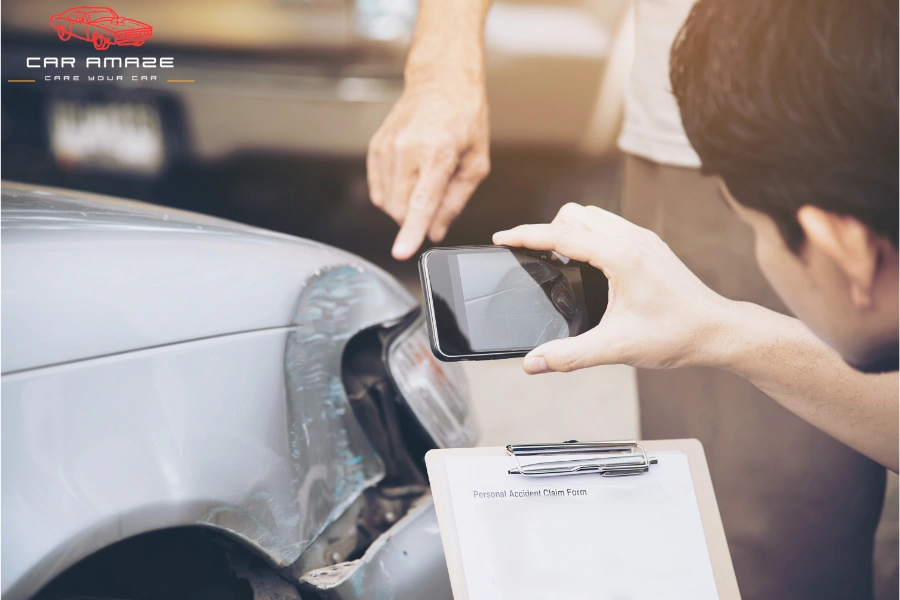
How to Determine Your Car’s Trade-In Value
Now that you got the answer to your question of whether you can trade in a damaged car, that is yes. However, before going to the dealer, estimating the trade-in value is beneficial. Here’s how to do it:
Research market value
There are some online platforms like Kelly Blue Book or Car Buyer USA where you can get an estimating trade-in value. On these platforms, you can look at a car with a similar model and condition to get a general idea.
Assessing damage severity
Assessing the type and extent of damage also helps you estimate the car’s value. For example, mechanical damage can affect the cost more than physical damage. Moreover, little scratches on the car’s paint do not impact the value much, but dents greatly reduce the car’s value.
Calculating trade-in value
Once you know the extent of damage and estimated value online, you can calculate the average car selling price. Just subtract the estimated repair price from the market value to get an idea. For this task, you might have to do research to find the estimated value of each repair.
Pros and Cons of Trading in a Damaged Car
Advantages:
- Convenience and Time-Saving: Trading in is quick and easy.
- Potential Savings on Repairs: You don’t have to fix the car yourself.
- Less Hassle than Private Sales: No need to find a buyer.
- Immediate Resolution: You get an instant offer from the dealer.
- No Additional Fees: No need to advertise or pay extra fees.
Disadvantages:
- Lower Trade-In Value: You might get less money than selling privately.
- Limited Dealer Options: Not all dealers accept damaged cars.
- Disclosure Requirements: You must be honest about the damage.
- Loss of Control Over Repairs: The dealer decides what gets fixed.
- Potential for Lowball Offers: Offers might be lower than expected.
Tips for Trading in a Damaged Car
Here are some tips to help you sell the damaged car easily and at a good price:
Disclosure requirements
Do not lie, and always tell the buyer the actual price of your car. Hiding the damages can lead to problems later and can damage the relationship ship. Moreover, if the hidden damages appear later, the dealer can cancel the deal or reduce the price.
Document damage
When checking the extent of car damage, documenting everything will help later during the negotiation. Take photos of each damaged part and write a short note about the damage.
Negotiating trade-in value
Even if your car has damage, you might get a better offer with formal negotiation. In general, many dealers initially tell the higher price because most sellers negotiate. For proper negotiation, you can highlight existing damages, provide repair estimates from others, highlight necessary repairs, and offer incentives for quick purchase decisions.
Refresh the car
Another strategy is to refresh the interior and exterior of your car. Properly wash the car to remove dirt and stains and apply wax for a shiny surface. Moreover, make sure that there is no bad mildew, smoke, or any other smell in the car. To keep the interior smelling fresh, you must know how to keep new car smell fresh.
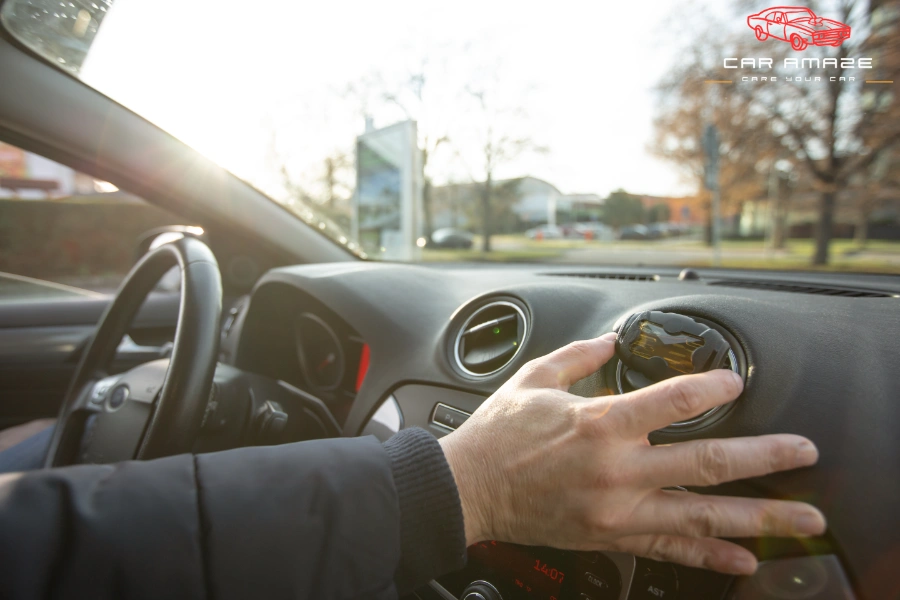
Alternatives to Trading in a Damaged Car
Although you can trade in a damaged car to dealers, there are some alternatives as well. Here are some other options:
Selling privately
Instead of going to a dealer, find individuals near you who are willing to pay a good price. You can either visit social media platforms or an online vehicle marketplace to find good buyers.
Repairing damage before selling
Fixing the damage before selling the car also helps you get a good price. Moreover, if you repair the car in advance, the chances of selling a car to individuals also increase.
Donating or junking
If the car model is too old or it is highly damaged in an accident, consider donating or junking it. Driving a highly damaged car is also dangerous, especially for new drivers. So, the best way to get rid of a highly damaged or non-repairable car is by donating or selling its spare parts.
Conclusion
Hopefully, you find the answer to your question: Can you trade in a damaged car? The short answer is yes. You can trade the damaged car, but make sure you estimate the car value in advance and get offers from multiple dealers. Moreover, do not forget to document everything regarding the car damage and trading with the buyer.
FAQs
How do you trade in a broken-down car?
To trade in a broken car, contact the local dealers to see if they buy your car or not. Some dealers are willing to buy the broken-down car because they have the skills to make a profit from it as well. However, you must be transparent about the car’s mechanical issues and body damage to get an accurate estimate.
Can you trade back in a car?
Yes, you can trade back in a car, even if you recently purchased it. If your car is financed, first make sure that the trade-in value covers the remaining loan balance.
Can you trade in a damaged and financed car?
Absolutely yes. You can trade in a damaged and financed car. If the trade-in value is less than the remaining installments, you will need to cover the difference.
Should I repair body damage before trading in a car?
While you can trade in a damaged car, repairing it can help you get a better price. Fixing minor mechanical faults, electrical issues, small dents, and scratches may increase the trade-in value.
Can you trade in a non-running car?
Yes, many dealers in the USA buy non-running cars. However, the trade-in value will be much lower than that of running cars with minor or major issues.
